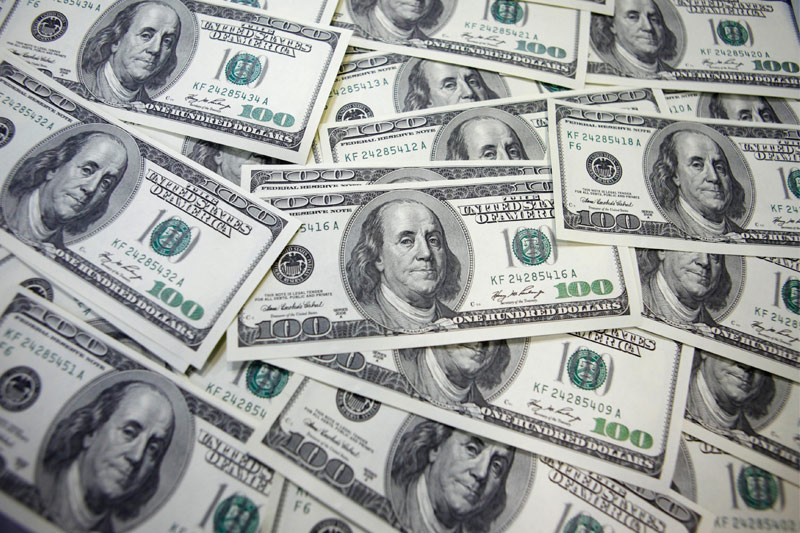Investing.com - The dollar pulled back after recording its biggest jump in more than a week on Wednesday. U.S. officials are to commence trade talks with China in Beijing while traders set their eyes on the Federal Reserve meeting for possible interest rate raises.
Wednesday morning in Asia saw the U.S. Dollar Index that tracks the dollar against a basket of currencies down 0.09% to 92.20 at 1:00AM ET (05:00 GMT).
The Federal Reserve is meeting later in the day, but traders widely expect the Fed to keep its benchmark lending rate. Most Asian stocks fell as trading resumed in key markets including China and Hong Kong after holidays.
The Japanese yen was steady against the U.S. dollar with the USD/JPY down 0.14% to 109.71. Japan’s April Service Purchasing Managers Index (PMI) came in at 52.5, beating the 50.9 in March.
The AUD/USD pair fell to 0.7475 during Wednesday, its lowest since June 2017. On Tuesday, the Reserve Bank of Australia had its monetary policy meeting but the cash rate remained at record lows.
In China, the dollar was trading higher against the CNY, with USD/CNY up 0.41% to 6.3595 at mid-morning.
The People's Bank of China (PBOC) set the reference rate for the yuan, the mid-point from which the currency is allowed to trade, at 6.3670 versus the previous day's 6.3393.
The daily currency fixing cut was more than traders and analysts had expected before several U.S. officials arrive in Beijing to discuss trade issues.
Several high-ranking US government officials including Treasury Secretary Steven Mnuchin, White House advisers Larry Kudlow and Peter Navarro, as well as Commerce Secretary Wilbur Ross are scheduled to arrive in Beijing on a trade mission to narrow the US trade deficit late this week.
Last Tuesday, Trump said if an agreement could not be reached between the two countries, the proposed tariffs on billions of dollars in Chinese goods will take effect as planned.
"The move in the fixing today is aggressive," said Ken Cheung, a currency strategist at Mizuho Bank Ltd. in Hong Kong. "China may want to weaken the yuan pre-emptively before the trade talks with the U.S., so that they have room to strengthen the currency" if needed, Cheung said, adding that policy makers may also be keen to arrest the yuan’s advance against a basket of peers.
